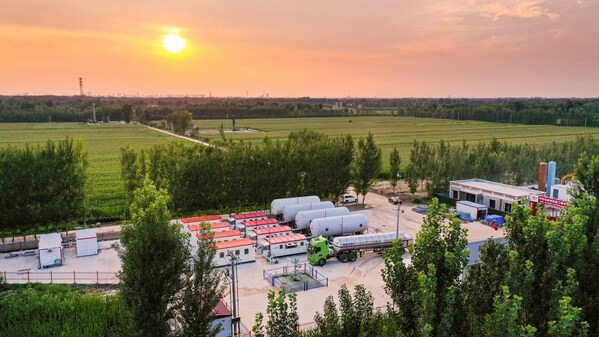 |
Chemical recycling of waste plastics viewed as key approach in advancing sustainability of chemical industry
BEIJING, March 13, 2023 /PRNewswire/ — Ma Yongsheng, President of China Petroleum & Chemical Corporation (HKG: 0386, "Sinopec"), is calling for the inclusion of carbon capture, utilization and storage (CCUS) projects into China’s voluntary emission reduction system.
CCUS is a key decarbonization technology with the potential to significantly reduce emission and be a key contributor on the path to achieve the "Dual Carbon" goals. While China’s CCUS technology and projects are developing steadily, the scale of CCUS projects is still relatively small compared to the total emission volume, and certain gaps in core technologies, especially the high cost, are limiting the large-scale commercial application.
Ma’s proposal of including CCUS projects into China’s voluntary emission reduction system calls for the relaunching and building of the unified national CCER (China Certified Emission Reduction) market, so that more carbon reduction projects can participate in the carbon market and motivate companies to carry out emission reduction projects.
"In the meantime, it’s crucial to conduct and publish CCUS methodology research at the national level, or accredit methodological research completed by companies and publish timely to promote the scaled development of CCUS projects," noted Ma.
He suggests amending the CCUS industry regulations, institutional and legal framework, and technical specifications to launch national standards of quantitative CCUS certification, and exploring the supporting policies such as CCUS tax preference and subsidy incentives towards achieving the goal of carbon neutrality.
Chemical recycling of waste plastics is a sustainable "waste to wealth" approach of advancing the green transformation of the refining and chemical industry and part of the circular economy roadmap to improve resource utilization rate and reduce GHG emissions. While China is carrying out technological research in sync with international peers, there are still challenges of difficulty in acquiring raw materials, lack of technology maturity and overall planning capabilities of the entire industry chain. It’s imperative to establish industrial demonstration and chemical recycling industry chain as well as raw materials and product related standard systems.
Ma has proposed to accelerate top-level planning and promote companies to establish national innovation centers, continue to tackle core technologies, and strengthen commercial development and resources utilization under government guidance to further promote the green transformation of the industry.
For more information, please visit Sinopec.


